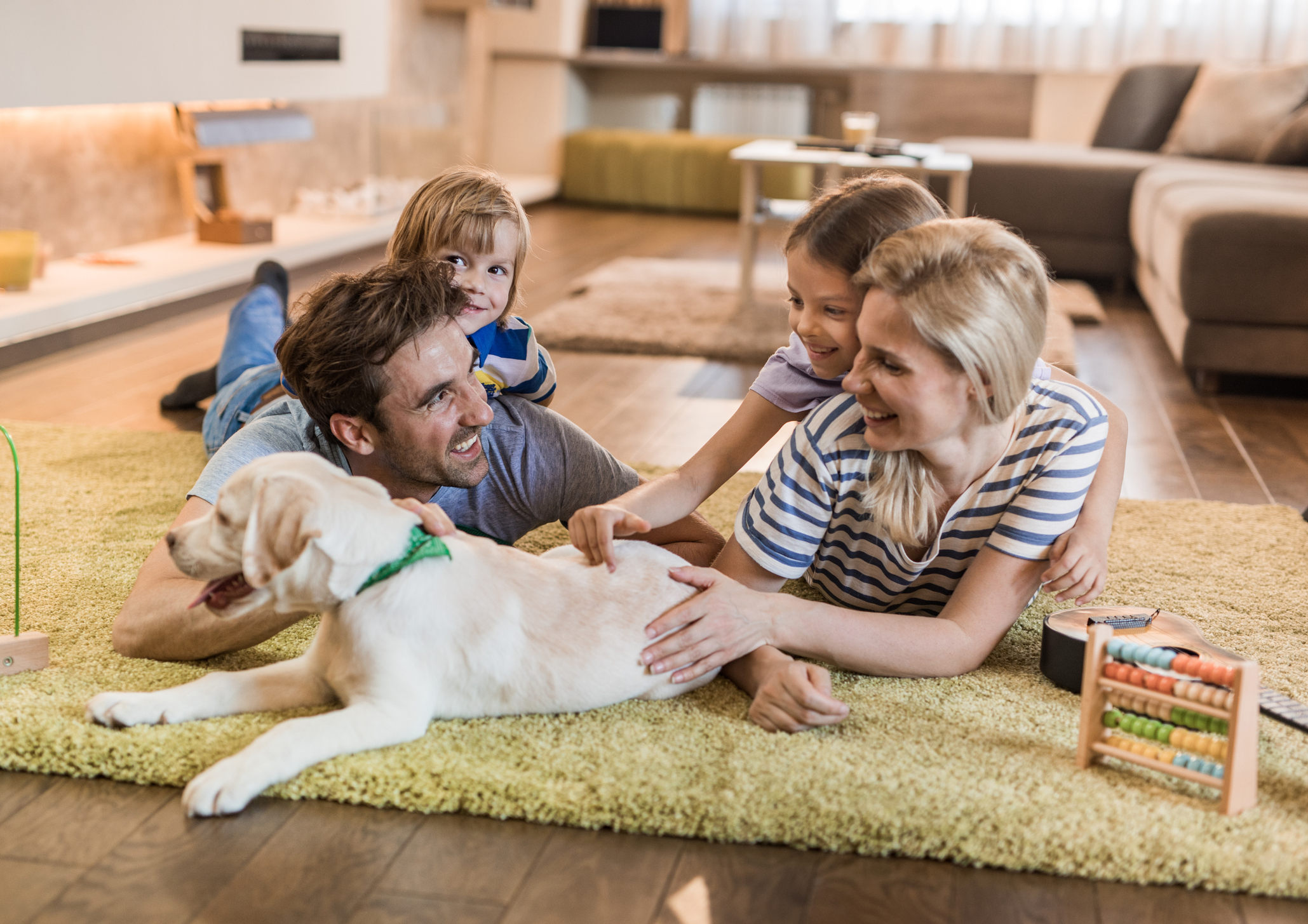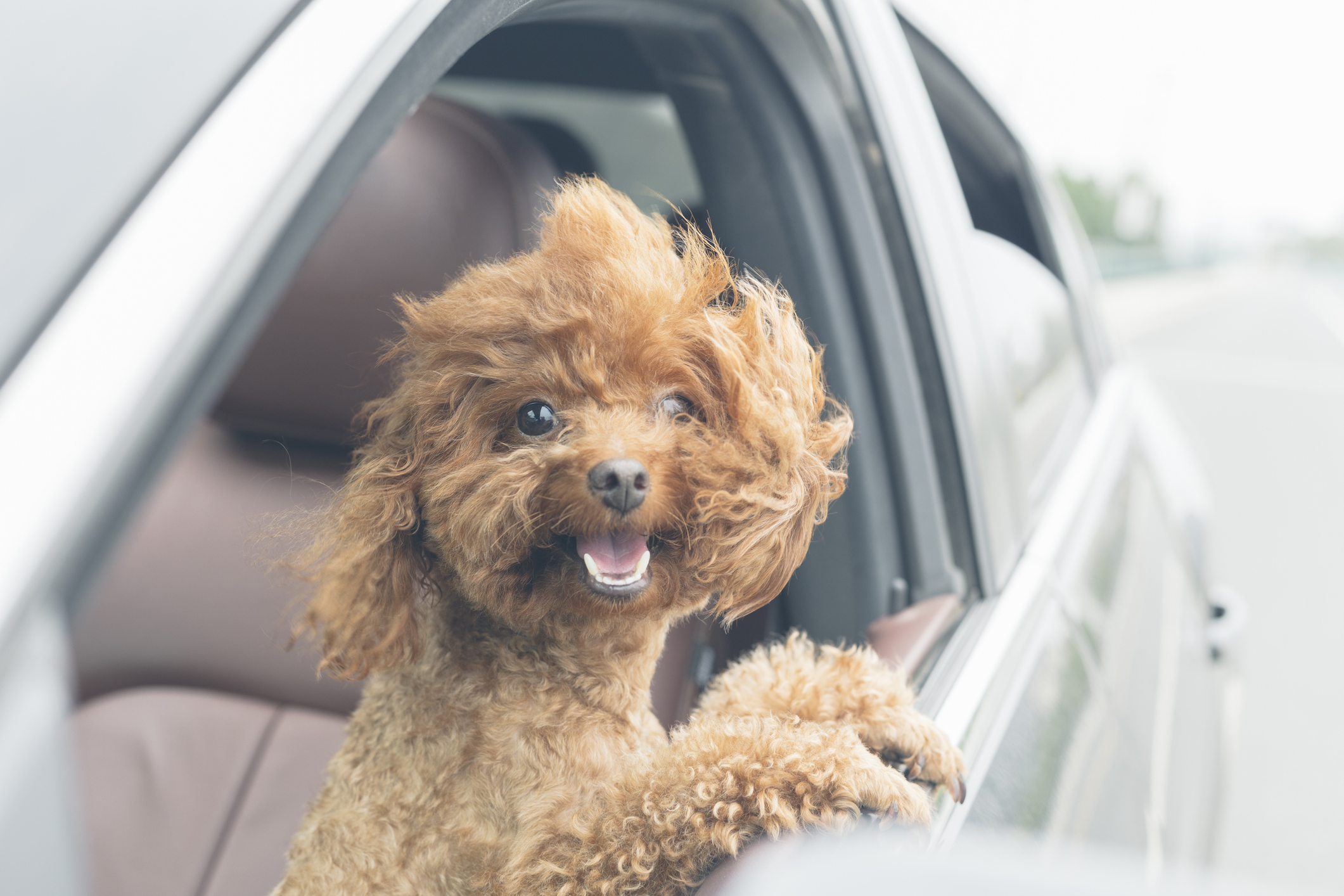
This is Why Socializing Puppies is So Important
After adopting a new puppy, you might be nervous about taking them out to the city or dog parks to interact with other pets. After all, a little puppy could easily be hurt by an animal or frightened by an unfamiliar situation, right?
However, your puppy’s first months are actually the perfect time to expose them to new sights, sounds, people and animals! This is called “socializing,” and it’s extremely important for all dog owners to do with their new furry friends.
The importance of socializing

There are many reasons to socialize your dog—and most go far beyond the fact that it makes it more convenient for you as a pet owner! Socialization is crucial for your dog’s development, happiness and health.
- Builds confidence: Perhaps one of the most important reasons to socialize your puppy is to help them build confidence and grow into a happy adult dog! Dogs who were socialized at a young age are more familiar with a variety of sights, sounds and experiences. This helps them approach new things with curiosity, rather than fear, and remain happy throughout their lives. It also makes it much easier to enjoy a range of experiences with your pup, from riding in a car to traveling to new locations.
- Minimizes behavioral problems: Research shows that improper socialization during a dog’s puppy years can lead to the development of behavioral problems. Improperly socialized dogs may exhibit fear or avoidance, which can be dangerous in many public situations. They may also act out and become aggressive when frightened—particularly toward children and other dogs—putting themselves and others in danger.
- Reduces anxiety and stress later: Alongside traditional behavioral problems, dogs who were not socialized thoroughly as puppies may develop severe stress and anxiety disorders that are triggered by new experiences. Chronic stress is harmful to dogs’ health and may worsen other behavioral issues, making home life stressful for your dog and your family.
- Stimulates their brain: Like humans, dogs learn through their senses. When these senses aren’t stimulated by new things, dogs might become bored—and, for puppies, bored often means destructive. A lack of stimulation is also not good for your puppy’s developing brain. Socialization can make your dog smart and inquisitive!
Puppy socialization 101
The key to puppy socialization is creating safe and positive associations with as wide of a variety of experiences as possible. Let your puppy explore as much as is safe for them to, but take it slow so your pup doesn’t get overwhelmed too quickly. Keep an eye on your puppy’s body language and behavior and provide downtime to avoid over-stimulation.
Throughout each of these stages, provide your pup with rewards and praise to help them associate these interactions with positive things and develop security.
- Start with gentle handling: If your puppy is very young, it may not be safe for them to roam throughout your house or even meet other people or animals right away. However, it’s still important to socialize a young pup—especially if they are isolated from their mother and litter early on. Without the socialization of other dogs, your pup will certainly need some face-to face interaction with other animals. In the meantime, gently handle the puppy on your own, giving cuddles, pets and praise.
- Let them meet new people: Have your puppy get to know your family extremely well by slowly introducing one new person at a time. This is also the time to introduce your puppy to a resident dog or cat. If everyone has already had a chance to become acquainted, invite other friends or family members over for a visit. This gives your pup a chance to see a range of faces, smell lots of new people, hear different voices and get used to being petted and handled by strangers.
- Introduce almost everything: As your puppy grows, you can start to introduce them to almost anything that is safe for them to come in contact with—and this means anything. Introducing your puppy to random and strange items can minimize surprise later on or reduce the risk of your pup being afraid of an innocent object or surface. Expose your pup to all kinds of noises, textures and smells.
- Take them to new places: Once your puppy is vaccinated and can safely travel to public spaces, take a tour of your city and expose the pup to a range of new environments. This might include things like the pet store (which will have all kinds of sounds and smells available!) or a busy traffic intersection. Also head out into natural environments, such as a sandy beach or a forest trail.
- Have puppy playdates: One-on-one puppy playdates and group puppy classes are great ways for your older puppy to learn proper socialization with other animals. This stage is one of the most important, because dogs must learn to speak each other’s languages and establish proper boundaries for safe play and communication.

Socialization is most important during your puppy’s first three or four months of life. However, it is also a lifelong training technique that can keep your pet happy and stimulated. Never stop exposing your dog to new experiences and keep encouraging them to learn and explore for the most enriching life possible.


